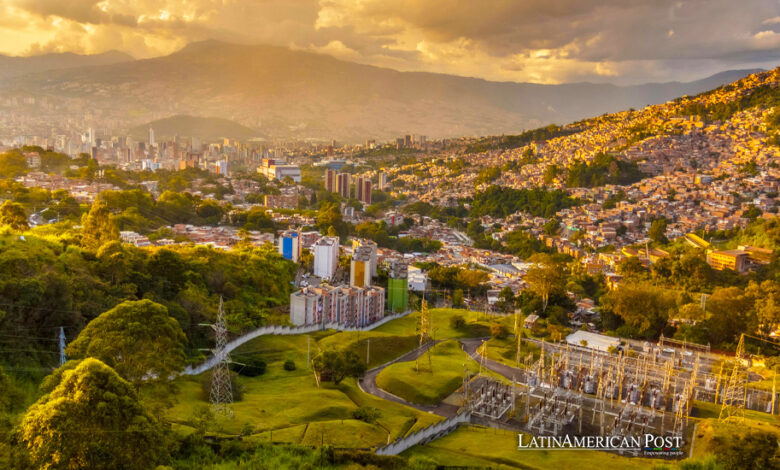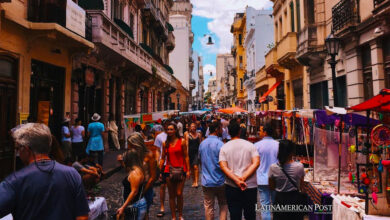Latin American Cities Emerge as New Digital Nomad Sanctuaries: Culture, Connectivity, Community

Across Latin America, cities like Medellín, Buenos Aires, and Mexico City are drawing digital nomads with their blend of vibrant culture, robust infrastructure, and welcoming communities. This migration reshapes local economies and fosters rich cultural exchanges in these urban landscapes.
In recent years, Latin America has seen an influx of digital nomads drawn to its cities by the allure of affordable living, warm climates, and rich cultural experiences. Medellín, Buenos Aires, and Mexico City have emerged as leading destinations for this modern workforce, offering the essentials of high-speed internet and coworking spaces and a lifestyle that balances work and play like no other. This feature explores how these cities have adapted to become havens for digital nomads, the impact on local economies and communities, and the vibrant cultural exchanges that ensue.
Medellín: From Historic City to High-Tech Haven
Once infamous for its tumultuous past, Medellín has reinvented itself as one of the most innovative cities in the world. Digital nomads are drawn to the city’s pleasant climate, known as the “City of Eternal Spring,” affordable living costs, and a growing number of coworking spaces. Areas like El Poblado and Laureles offer a mix of tranquility and urban convenience, with cafes and coworking spots equipped with high-speed internet becoming the new norm.
The local government’s commitment to improving public infrastructure and safety has significantly attracted remote workers. The city’s metro system, cable cars, and bike-sharing programs make getting around easy and affordable. Community events, tech meetups, and language exchange gatherings provide a supportive environment for foreigners looking to integrate and contribute to the local ecosystem.
Buenos Aires: Cosmopolitan Charm with a Creative Twist
With its European-inspired architecture and vibrant arts scene, Buenos Aires offers a unique backdrop for digital nomads. The city’s cosmopolitan vibe, combined with the warmth of its inhabitants, creates a welcoming atmosphere for newcomers. Coworking spaces and creative hubs dot the city, fostering community and collaboration among remote workers.
The Argentine capital is renowned for its culinary scene, offering everything from traditional steakhouses to avant-garde dining experiences. This, coupled with the city’s affordable cost of living (mainly when benefiting from the favorable exchange rate), makes it an attractive option for digital nomads. Buenos Aires’s extensive public transport network and cultural offerings, from tango shows to art galleries, ensure there’s always something new to explore.
Mexico City: A Melting Pot of Culture and Connectivity
With its bustling streets and kaleidoscopic culture, Mexico City has become a magnet for digital nomads worldwide. The city offers an unparalleled mix of history, cuisine, art, and modern amenities catering to remote workers’ needs. Neighborhoods like Condesa, Roma, and Polanco are favorites among nomads, offering many coworking spaces, artisan coffee shops, and international dining options.
The city’s infrastructure supports a seamless digital nomad lifestyle, with reliable internet and various accommodation options ranging from hostels to luxury apartments. Mexico City’s community spirit shines through networking events, workshops, and cultural festivals, encouraging interaction and integration between locals and expatriates.
Impact on Local Economies and Cultural Exchanges
The rise of digital nomadism in Medellín, Buenos Aires, and Mexico City has had a noticeable impact on local economies. The increased demand for housing, coworking spaces, and services has spurred growth in these sectors, creating jobs and stimulating investment. Local businesses benefit from the diverse and international clientele, while the influx of global perspectives fosters innovation and creativity.
Also read: Building Trust and Safety and The Urgent Need for Penitentiary Reform in Latin America
Culturally, these cities have become melting pots of ideas and traditions, enriched by the stories and experiences of their temporary inhabitants. Language schools, cultural workshops, and international meetups facilitate cultural exchange, broadening the horizons of both locals and nomads. This cross-pollination of cultures enhances the social fabric of these cities. It contributes to a more inclusive and global-minded community.
Conclusion: A New Era for Latin American Metropolises
Medellín, Buenos Aires, and Mexico City exemplify the transformation of Latin American cities into global hubs for digital nomads. They have positioned themselves at the forefront of this modern work movement by offering the infrastructure and community support that remote workers need and the unique cultural and lifestyle opportunities that define each city. As they continue to evolve and adapt to the needs of digital nomads, these cities not only boost their local economies but also forge new paths of cultural exchange, setting a precedent for urban centers worldwide.





